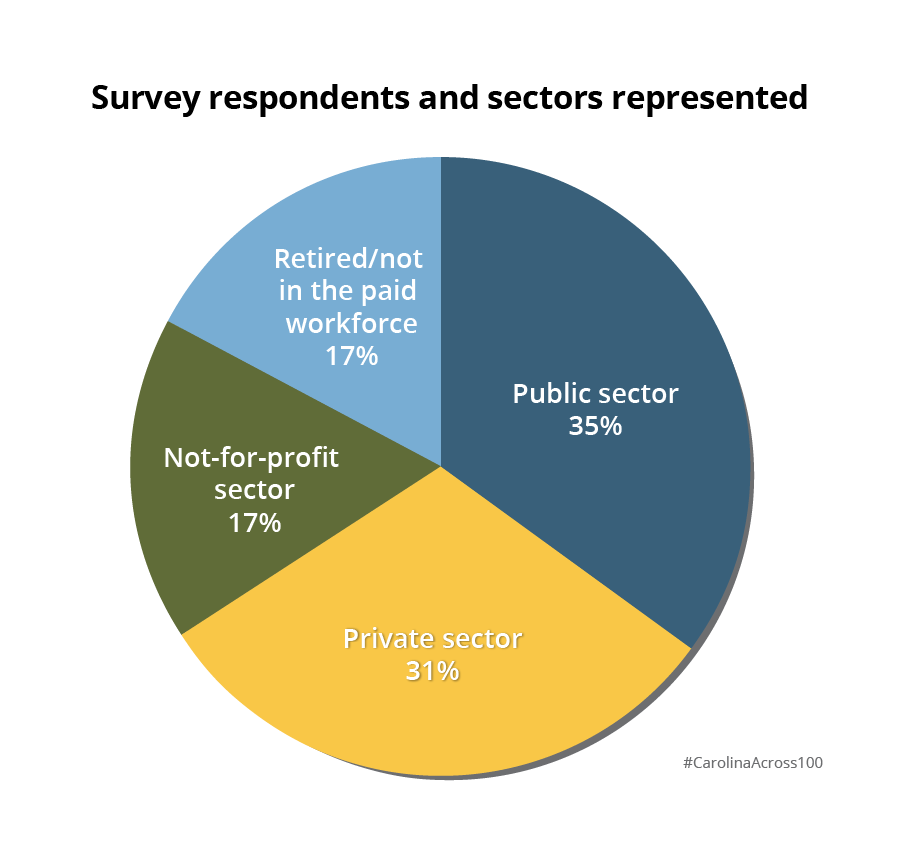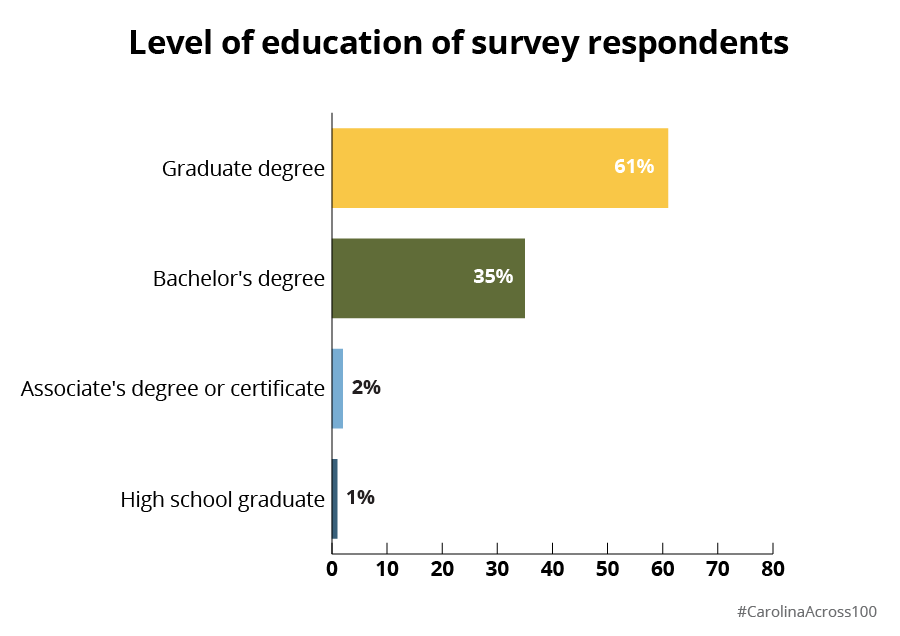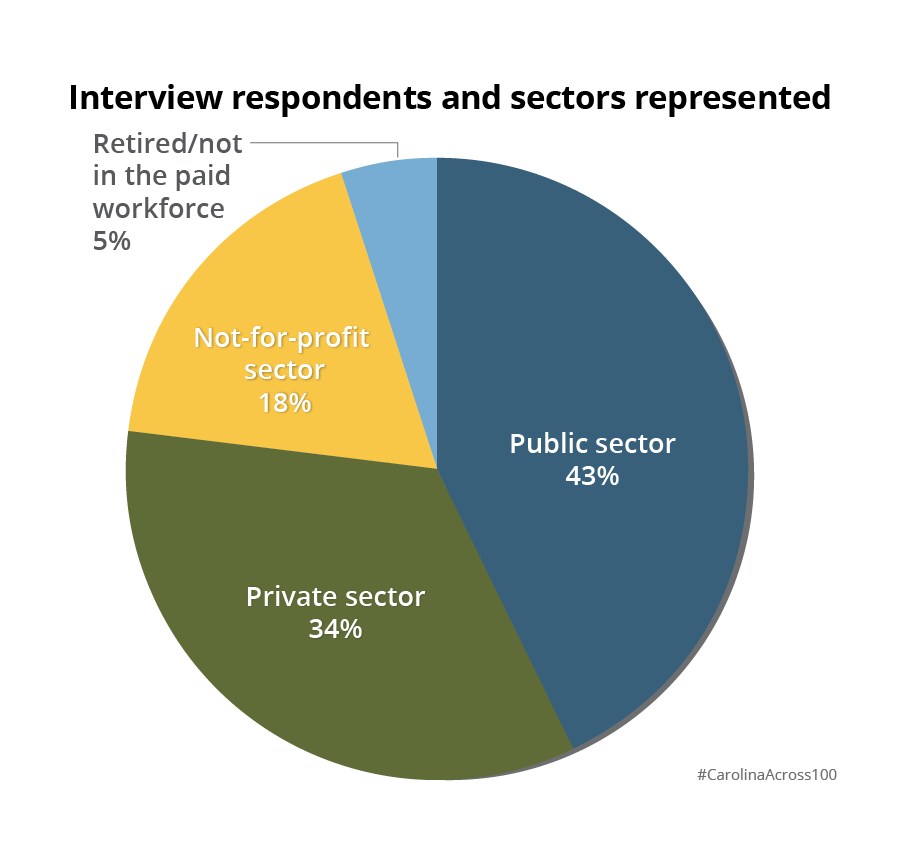Listening First
This initiative is grounded by community voices, and a deep listening phase began this past summer to hear from individuals directly about the ways COVID-19 has impacted their organizations, businesses, and communities. During June and July, a group of four UNC students conducted twenty-one key informant interviews with leaders in the public, private, and not-for-profits sectors. Those conversations illuminated several significant challenges facing communities and informed a second part of the listening phase which included a survey administered to stakeholders across the state and an expanded set of in-depth interviews.

The survey was distributed in September and captured input from diverse perspectives, including city and county managers, public health directors, law enforcement officials, business owners, teachers and school administrators, and leaders from a variety of not-for-profit agencies. Survey invitations also included all University alumni still living in North Carolina. In total, over 100,000 survey invitations were distributed. Approximately 31,000 individuals opened the email invitation and just over 4,000 individuals opened the survey link. The result was 3,208 complete survey responses representing every county and a diverse array of perspectives.
These rich survey data enabled detailed comparisons across counties, employment sectors, and various demographic groups to gauge similarities and differences across these domains. We applied quantitative and geo-spatial analysis tools which revealed patterns in the data as well as text analysis to extract the most common key words and phrases from responses to open-ended survey questions. These findings illustrate the most widespread concerns and priorities for recovery related to COVID-19.
Additionally, more than sixty in-depth interviews took place in October and early November. These conversations added necessary detail and depth to our quantitative findings and helped further bring the picture of COVID-19 impacts into focus. The interviews expanded opportunities for stakeholders to share stories of their experiences – the difficult, the complicated, the heartbreaking, as well as the slivers of hopefulness about the possibility that the pandemic can be a catalyst for transformative change.
Diverse perspectives from across the state
Survey respondents included individuals living and/or working in all one hundred North Carolina counties. Thirty-five percent of survey respondents reported working in the public sector, 31% in the private sector, 17% in the not-for-profit sector, and 17% were retired or not currently in the paid workforce.

Due to the targeted nature of our survey sampling, our respondents were highly educated: 61% have a graduate or professional degree and 35% have a bachelor’s degree. This is well above the state-wide average of 12% of residents with a graduate or professional degree and 24% with a bachelor’s degree.1 Even so, our survey population provides a critical vantage point for assessing community needs and challenges given the leadership roles many of our respondents fill in their organizations.

Like the survey, our interviewees represented diversity across geography and employment sectors. The individuals we spoke to live in and/or serve all sixteen of North Carolina’s Council of Government (COG) regions, all eight Prosperity Zones, and all three economic tiers, which rank counties by their level of economic distress.



